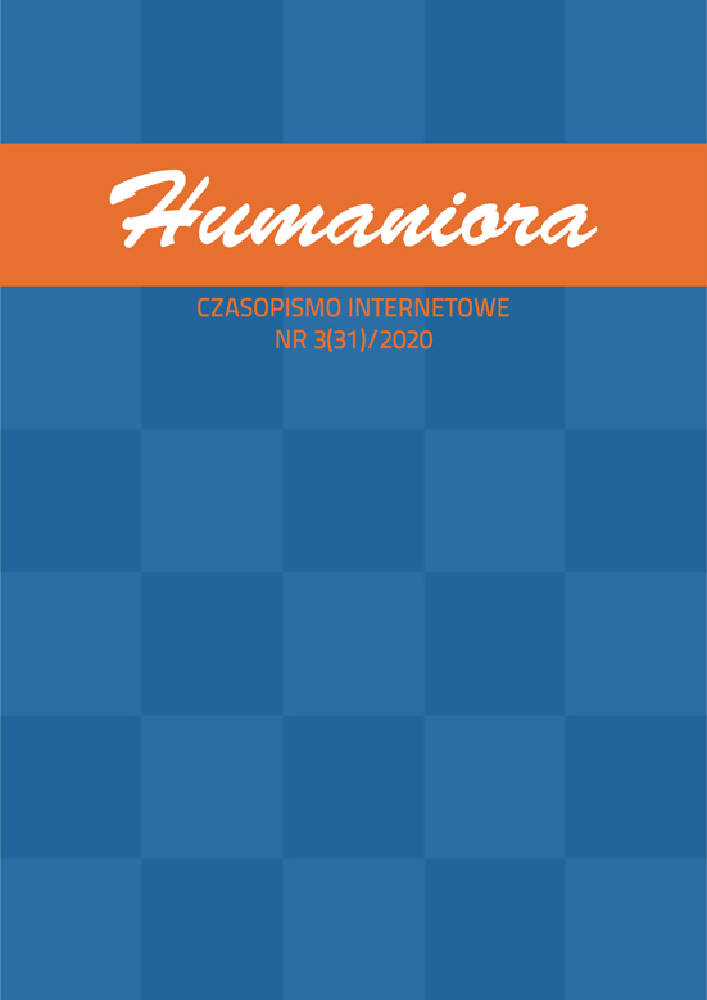Abstract
The article is devoted to the analysis of the potential for counteracting the social exclusion of people with mild intellectual disability through educational and professional activation in craftsmanship. Within the scope of the subject, the author presents the potential of education in craft workshops in Poland and, comparatively, in craft professions in Germany. The article analyses the advantages of vocational training in craftsmanship for counteracting social exclusion, but also shows institutional barriers. The thesis of the article is that, given the large scale of vocational education in crafts in Poland, this type of learning does not fully realise the potential for the professional activation of people with mild intellectual disability. To confirm this, the article presents the activities aimed at introducing a solution concerning the possibility of obtaining qualifications by persons with mild intellectual disability who are learning some craft. These postulated qualifications are described by the Polish Craft Association as a journeyman’s assistant.
References
Cierpiałkowska L., Psychopatologia, Scholar, Warszawa 2012.
Ebbinghaus M., Esser F.H., Berufliche Bildung im Handwerk. Entwicklungen und Herausforderungen im Kontext von Digitalisierung und demografischem Wandel, BIBB, Bonn 2017.
Greinert W.D., Wolf S., Die Berufschule – radikale Neuorientierung oder Abstieg zur Restschule?, Universitätsverlag der TU, Berlin 2013.
Informacja oświatowa Związku Rzemiosła Polskiego za lata 2009–2017, materiał powielony.
Łada A., Rynek pracy wyzwaniem, Kształcenie zawodowe szansą, Fundacja Konrada Adenauera, Warszawa 2017.
Mazik-Gorzelańczyk M., Kształcenie zawodowe w Polsce w perspektywie zmian i potrzeb gospodarki, Fundacja Friedricha Eberta, Warszawa 2016.
Mueller K., Thomae J., Bedeutung der qualifikationsgebundenen Zugangsberechtigung im Handwerk für die Funktionsfähigkeit des dualen Ausbildungssystems, Deutches Handwerkinstitut, Getynga 2015.
Otrębski W., Osoby z upośledzeniem umysłowym w sytuacji pracy, Towarzystwo Naukowe KUL, Lublin 2001.
Przetacznikowa M., Makiełło-Jarża G., Podstawy psychologii ogólnej, WSiP, Warszawa 1992.
Rutkowska-Kalisz M., Na co komu pomocnik czeladnika?, „Wielkopolski Rzemieślnik” 8/2011.
Seligman M.E.P., Walker E.F., Rosenhan D.L., Psychopatologia, Zysk i S-ka, Poznań 2003.
Sękowska Z., Dziecko upośledzone umysłowo, w: Z. Sękowska (red.), Wybrane zagadnienia z psychologii i pedagogiki upośledzonych, Wydawnictwo UMCS, Lublin 1976.
Stanowisko Związku Rzemiosła Polskiego w sprawie zmian wynikających z projektu ustawy o zmianie ustawy – Prawo oświatowe i ustawy o systemie oświaty oraz niektórych innych ustaw (projekt przekazany do konsultacji w dniu 26 czerwca 2018 r.).
Wielkopolska Izba Rzemieślnicza w Poznaniu, Alfabetyczny wykaz zawodów rzemieślniczych, http://www.irpoznan.com.pl/userfiles/files/oswiata%202018/lista%20zawod%C3%B3w%20pdf.pdf [2.01.2020].
Strony internetowe
https://handwerk.de/gewerbe [22.08.2018].
https://handwerks-power.de/handwerksberufe-2/ [22.08.2018].
https://www.gov.pl/web/edukacja/podstawa-programowa6 [19.05.2019].
https://www.hwk-ff.de/witamy/ [22.08.2018].
https://www.hwkno.de/artikel/was-ist-handwerk-76,3412,163.html [20.08.2018].
https://www.zdh.de/daten-fakten/kennzahlen-des-handwerks/ [17.08.2018].
https://www.zdh-statistik.de/application/index.php?mID=3&cID=47 [17.08.2018].
License
Czasopismo oraz wszystkie zamieszczone w nim materiały są powszechnie dostępne i mogą być wykorzystywane do celów naukowych, edukacyjnych, poznawczych i niekomercyjnych bez konieczności uzyskiwania każdorazowej zgody autorów i redakcji. Nadesłanie artykułu do publikacji traktowane jest jako zgoda autora na udostępnienie swojej pracy i informacji w niej zawartych do powyżej wymienionych celów. W takich przypadkach należy jedynie wskazać źródło, z którego zaczerpnięte zostały informacje. Pobieranie opłat za dostęp do materiałów zawartych w czasopiśmie lub ograniczanie do niego dostępu jest zabronione.
Przesyłane do redakcji teksty muszą stanowić oryginalne prace, uprzednio nigdzie niepublikowane ani nie przedkładane innym redakcjom lub wydawcom. Autorzy nadsyłanych artykułów ponoszą odpowiedzialność za uzyskanie zezwoleń na publikowanie materiałów, do których prawa autorskie są w posiadaniu osób trzecich. Publikacja materiałów chronionych prawem autorskim jest możliwa pod warunkiem uprzedniego dostarczenia przez autora do redakcji pisemnej zgody właściciela praw autorskich.





